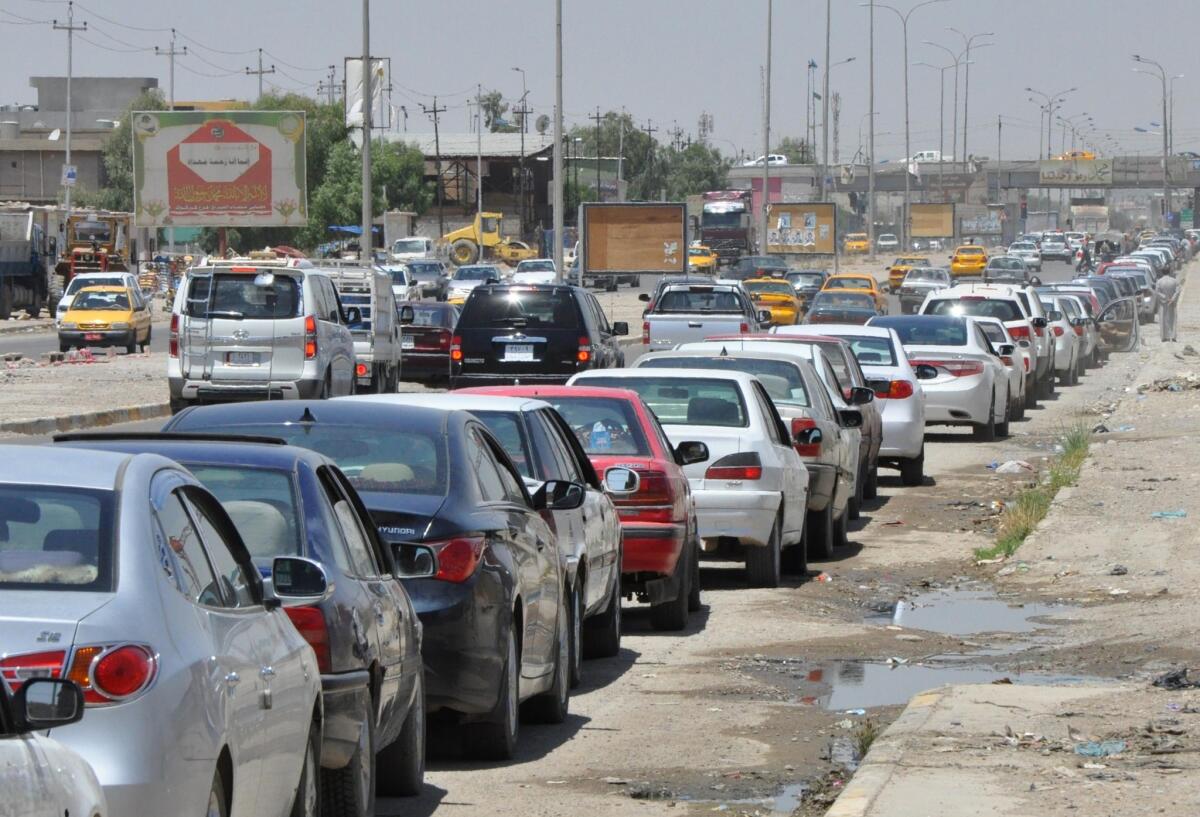Iraq militants launch attack on vital oil refinery

- Share via
Reporting from Irbil, Iraq — Anti-government militants launched an attack Wednesday on Iraq’s largest oil refinery, while Prime Minister Nouri Maliki assured the nation that resurgent Iraqi forces would triumph against “terrorism.”
Sunni rebels affiliated with the Islamic State of Iraq and Syria, an Al Qaeda breakaway group, struck at the huge refinery at Baiji, 155 miles north of Baghdad, the capital. Fighting at the huge complex was said to be continuing.
Iraqi officials denied reports that the Baiji facility had fallen and asserted that government forces had repelled the attack. But Reuters, citing an unidentified refinery official inside the plant, reported that militants had gained control of 75% of the facility after a predawn assault.
The area near the refinery complex had been the site of clashes since last week and production had been halted.
The refinery would be a key strategic prize for the rebels, who already have asserted control over oil fields in eastern Syria. Last week, militants spearheaded by ISIS overran huge swaths of northern and central Iraq as the Iraqi army and police forces put up limited resistance.
Severe gasoline shortages were already reported in much of northern Iraq. Lines of motorists stretching two miles or more were evident at gas stations in Irbil, in the semi-autonomous Kurdish region, as outdoor temperatures soared above 100 degrees.
In his nationally televised address, Maliki asserted that the bleak situation on the battlefield last week had begun to turn around.
“What happened to Iraq was a catastrophe and not every catastrophe is a defeat, for Iraq has regained its national unity,” the prime minister said. “We have started our counteroffensive, regaining the initiative and striking back.”
Critics have accused the president, a Shiite, of governing in a sectarian fashion that has marginalized Iraq’s minority groups, including Sunni Muslims, while favoring the Shiite majority. The rebels fighting the government are Sunni and have mostly advanced through areas largely populated with Sunni Muslims.
The Iraqi prime minister has denied having a sectarian agenda and has accused Saudi Arabia, the major Sunni power in the Persian Gulf region, of helping to incite the violence in Iraq. Saudi officials have denied any direct involvement.
The Sunni rebel advance in Iraq has so far stopped short of Baghdad, where tens of thousands of Shiite men were reported to be volunteering for military service and for pro-government militias in a bid to halt the rebel advance. Reports of sectarian killings reminiscent of those during the civil war that raged from 2006-2008 have been circulating in the capital.
Special correspondent Bulos reported from Irbil, Iraq, and Times staff writer McDonnell from Beirut.
Follow @mcdneville on Twitter
More to Read
Sign up for Essential California
The most important California stories and recommendations in your inbox every morning.
You may occasionally receive promotional content from the Los Angeles Times.














